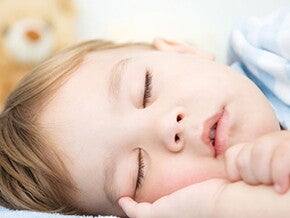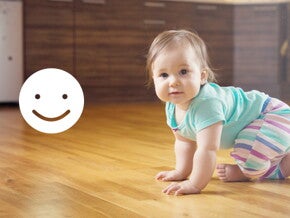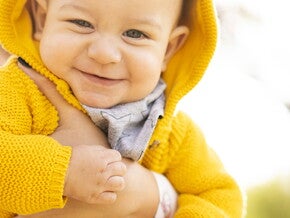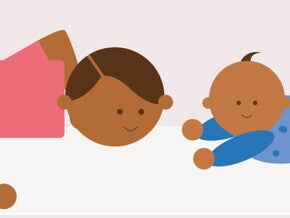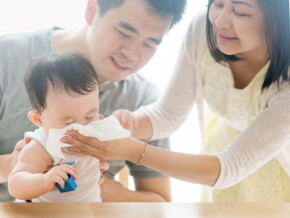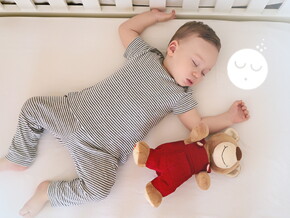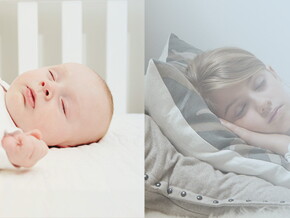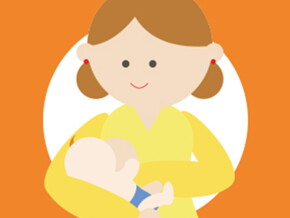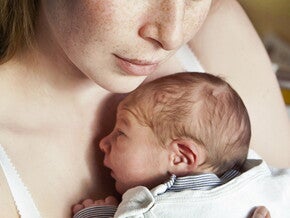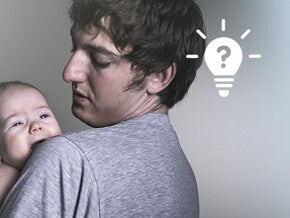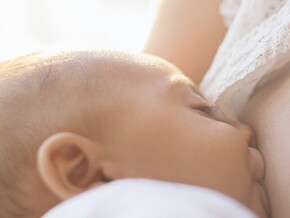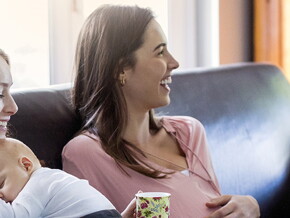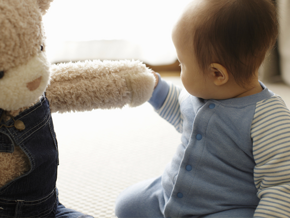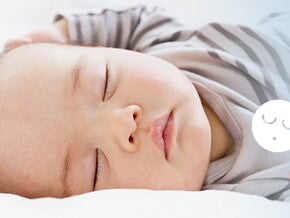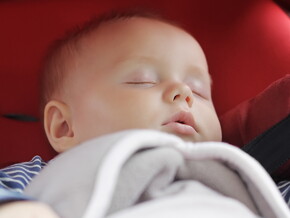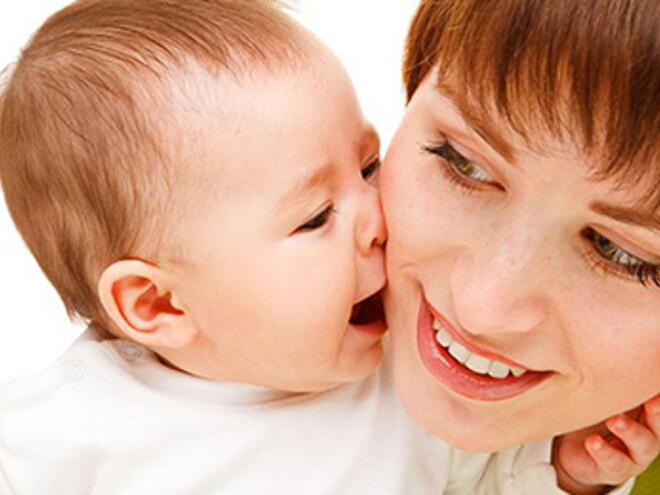
Your little one will need three years to progress from sounds such as the adorable "coo-cooing" and blended words such as "chocolacake", to phrases containing a subject, verb and object. Within this lapse of time you will experience the same things as all parents worldwide; you will go daft over the first goo goo gaa gaa sounds; before becoming experts in the coded baby language; and finally being totally in awe of the speech progress of your little wonder. Here, we explore the road map of the main stages of language acquisition.
Goo goo, gaa gaa, mu, da, mu… mummy!
Barely out of the womb, your baby already has a very loud voice, as anyone would agree just hearing them cry! Your baby's first sounds are shared by babies worldwide in that they only use vowels to begin with! Your baby has already begun using their mother tongue. This is why it is important to speak clearly to your baby from birth.
3 months and up: Your baby discovers the pleasure of sounds and babbling. This is natural as their brain needs to organise the areas controlling verbal comprehension and those controlling language.
Sounds therefore often come with baby's first mimics and a body language full of meaning. For example, a cry of joy with a big smile, a tentative "neh" sound and inscrutable expression, a satisfied "goo goo" after the bottle, crying and fidgeting…The ability to decipher their body language and cries will come with time.
6-8 months: your baby understands something that will change their life! When they "speak" their parents answer. Never mind if for now the full meaning is a little vague, your baby has become a professional babbler. The main thing is that they have understood the principle of interaction. Identifying words and their meaning falls into place gradually in their little brain.
8-12 months: "cake!" Finally your baby is able to express their ideas and is now well on their way to communicating. It is at this age that your baby says "mama" and "papa" for the first time. So, who will be first?
To stimulate your baby, it is important to speak to them from the outset while naming situations and objects. You may be surprised with what Baby can remember!
5, 12… and soon 100 words, baby's vocabulary explodes!
12-20 months: speech takes off with just a few very simple and efficient words ("finished", "no", "more" etc.) to indicate a change of situation. Your baby will repeat their favourite onomatopoeias (brum-brum, meow etc.). Two-word utterances such as "mummy gone", indicating a situation and its solution, begin to appear.
For the time being your child understands more than they speak. You can encourage them to progress by looking at words and pictures together or by singing nursery rhymes to them. It is especially important to continue talking naturally to them as it is the best way of enriching their vocabulary and stimulating their curiosity.
Words, sentences… the beginnings of conversation!
At 2 years, language comes all at once but this age may vary among children as some baby's take their time. At this age your baby learns one new word per day, and sometimes has a hard time getting all the words out! They are now able to name objects correctly and become interested in other people's thoughts and no longer just in themselves.
Their personal repertoire becomes richer and baby begins to talk to communicate. Make the most of this time to read stories to your baby and to talk to them about what is going on around them. Baby has become an avid explorer of language!
2-3 years: your little one discovers that words are related, a revelation! They will often use a verb at the start of a sentence before pronouns and articles. They can now say "I", even if they have been aware of their individuality for some time now.
